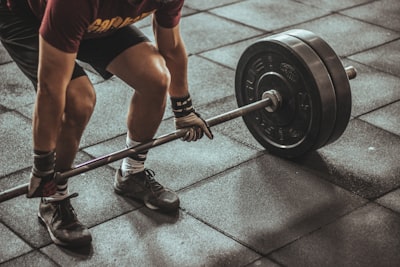There are many hormones that are responsible for different aspects of athletic performance. Each of these hormones play an important role in performance on all artificial turf fields, running tracks, and treadmills around the world. However, it is not just the hormones themselves that affect athletic performance, but also the way they are balanced.
A hormone imbalance can have a negative impact on endurance, causing problems such as loss of muscle mass, reduced strength, increased fatigue, and impaired stress management. This is why it is important for athletes to have their hormone levels checked regularly and, if necessary, to seek treatment to restore balance. If you suspect that one of these important hormones is imbalanced, talk to your doctor for guidance.
Estrogen

Estrogen is responsible for bone density. It is produced in the ovaries in women. Estrogen levels peak during puberty and then slowly decline as a person ages. There is a lot of debate surrounding the effects of estrogen on athletic performance. Some researchers claim that estrogen can have a negative impact on strength, speed, and power. Others maintain that there is no significant difference in the performance of male and female athletes, and that any differences are a result of social conditioning and the different levels of testosterone present in men and women.
However, there are likely many reasons why estrogen blockers can optimize athletic performance. One possible reason is that estrogen blockers can help to increase muscle mass and strength. Additionally, the best estrogen blocker can help to improve endurance, due to their effects on the body’s metabolism.
Testosterone
Testosterone is the most well-known hormone when it comes to athletic performance. It is responsible for the development of muscle mass, strength, and power. Testosterone is produced in the testes in men and in the ovaries in women. Testosterone levels peak during puberty and then slowly decline as a person ages. Low testosterone levels can lead to a loss of muscle mass, a decrease in strength and power, and an increase in body fat.
Growth Hormone
Growth hormone is responsible for the growth and repair of muscle tissue. It is produced in the pituitary gland. Growth hormone levels peak during puberty and then slowly decline as a person ages. Growth hormone is also responsible for the production of IGF-1, which is responsible for the growth of muscle tissue. Low growth hormone levels can lead to a decrease in muscle mass, a decrease in strength and power, and an increase in body fat.
Thyroxine

Thyroxine is responsible for the rate of energy production. It is produced in the thyroid gland. Thyroxine levels peak during puberty and then slowly decline as a person ages. Low thyroxine levels can lead to a decrease in the rate of energy production and an increase in the rate of fat storage. Some signs that you may have low thyroxine levels include feeling tired all the time, having a hard time losing weight, feeling cold all the time, and having a slow heart rate.
Adrenaline
Adrenaline is responsible for the body’s response to stress. It is produced in the adrenal gland. Adrenaline levels peak during times of stress and then slowly decline as a person becomes more relaxed. Adrenaline is responsible for the increase in heart rate, the release of glucose and fatty acids from the liver, and the constriction of blood vessels. High levels of adrenaline can lead to an increase in the rate of energy production and an increase in the rate of muscle contraction.
While there is a clear link between hormones and athletic performance, with different hormones playing different roles in different aspects of endurance, it is important to note that they are not the only factor that matters. Diet, training, and genetics all also play a role in how well an athlete performs.
